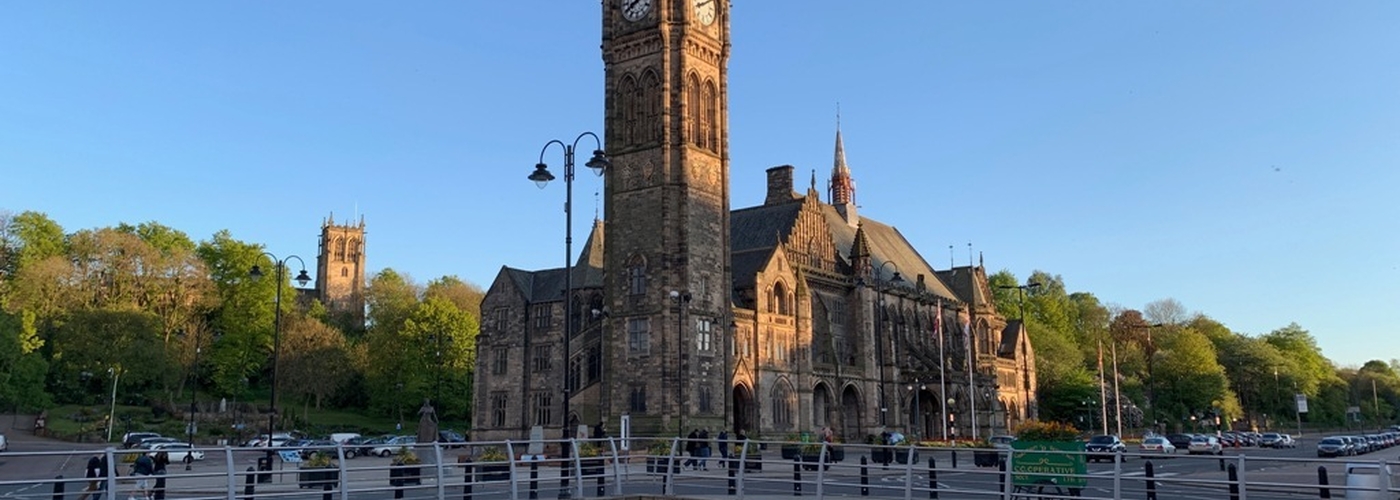David Adamson hears about a hopeful haven for independents whose 'best days are ahead of it'
When trying to build a network of independent businesses in a town, reputation can do a lot of heavy lifting. If someone mentioned to you in passing that a series of bars, pubs and restaurants had cropped up in a corner of Altricham you'd barely blink. But what about Rochdale?
Nearby Calderdale enjoys renown as a hotbed of hippies in self-imposed exile from the city and as such the businesses reflect that. I've known several disciples of city living up sticks, run for the hills and don their dungarees, so why have they been swerving Rochdale en route?
In terms of the town in general you certainly need to keep your foot on the accelerator in terms of rejuvenation, because the headwinds and challenges are always there.
It should be noted that the one-two punch of revelations in the early 2010s, first about the grooming gangs and then MP Cyril Smith, branded into the town's name a connotation from which it has at times struggled to free itself.
But reputations don't open shop shutters every morning, and since then the town has made great efforts to be more than just somewhere that's 'actually quite nice' to a destination, and desirable place to live, all of its own.
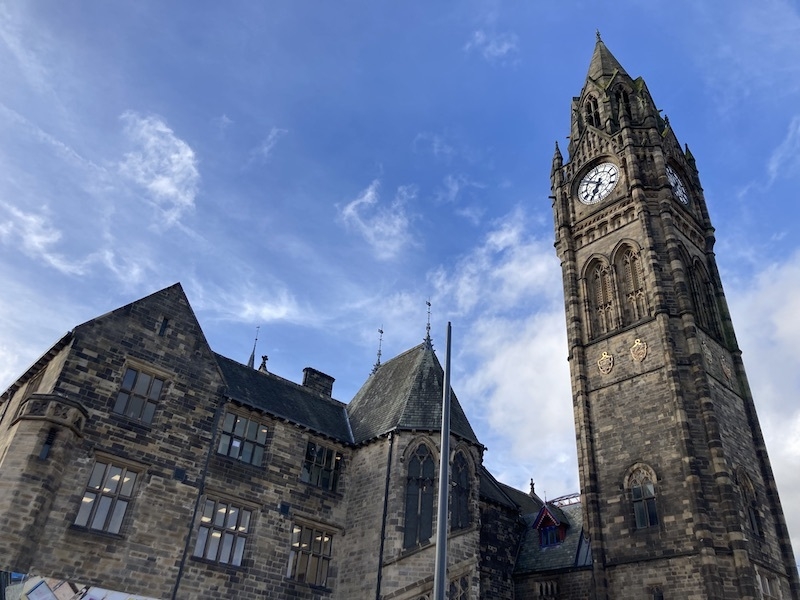
It would seem fitting that the birthplace of the co-operative movement should see a second summer as a place to do business differently, but this has not been without its work, as Cllr John Blundell (Smallbridge and Firgrove, Labour) explained.
John, who served as the cabinet member for regeneration between 2017 and May of this year explained that before a renewed town centre could be fully delivered a lot of work reviving its landmarks and cultural assets had to be undertaken first.
"First was the regeneration of eight cultural heritage assets and the remodelling of the centre by demolishing 70s monstrosities like the council offices, known as The Black Box," he said. "Since then there's been significant investment in the heritage of the town; the Town Hall's under refurbishment, the river has been reopened. That physical regeneration was simply about making it look better. To say 'This isn't a dump, it's somewhere you'd want to live'.
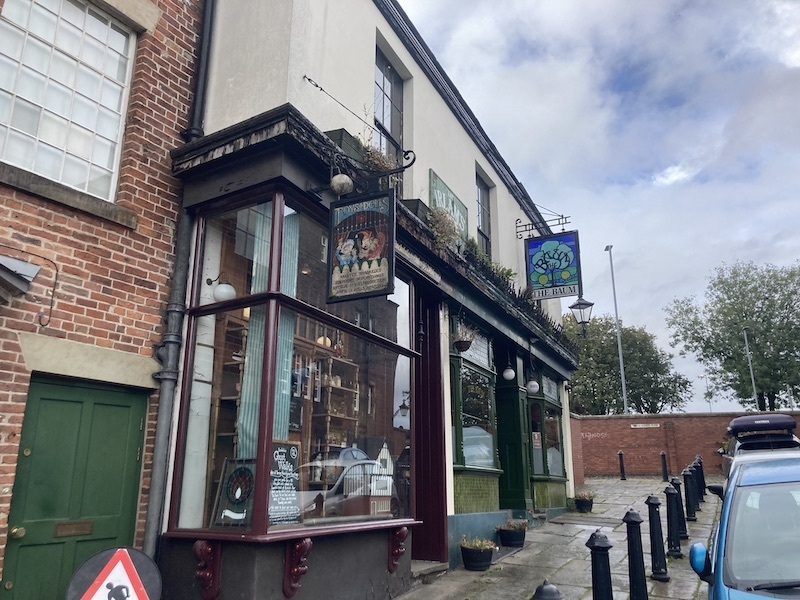
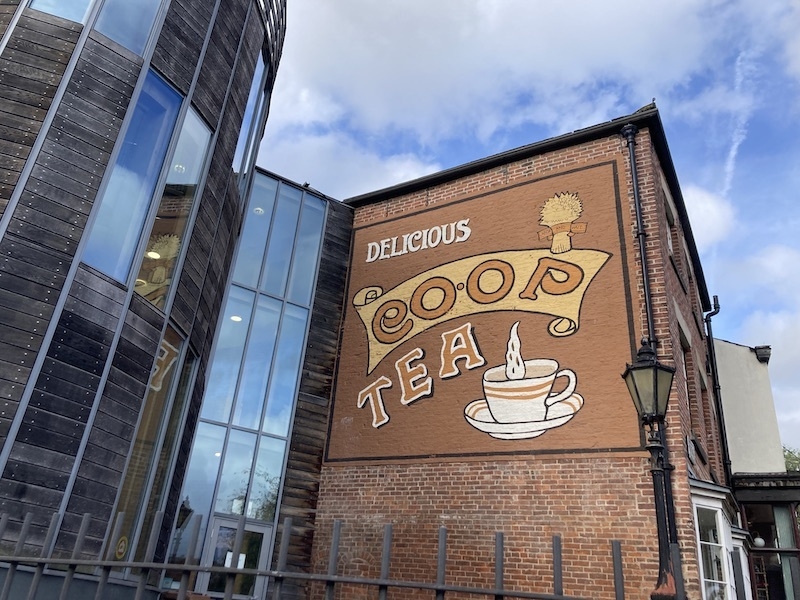
"The second part, which was as important, was attracting people to live in the town centre, because that essentially creates a base level of demand. There's now flats above Bombay Brew, which is grade II listed. Old mills have been turned into apartments, and then there's the Rail Corridor Strategy, which was about repopulating around the five stations in the borough so that you could get quick access to Manchester in 15 minutes but live in Rochdale. There's a number of really good independents, and the reason they exist is because there's now a more people in the town centre and coming into the town centre.
"You can keep spending money on a place and making it look better, and that will create a certain level of demand. But if a place isn't populated then it will never survive; you'll constantly be on the hamster wheel of throwing good money after bad and that's essentially what happened from the 60s until about ten years ago."
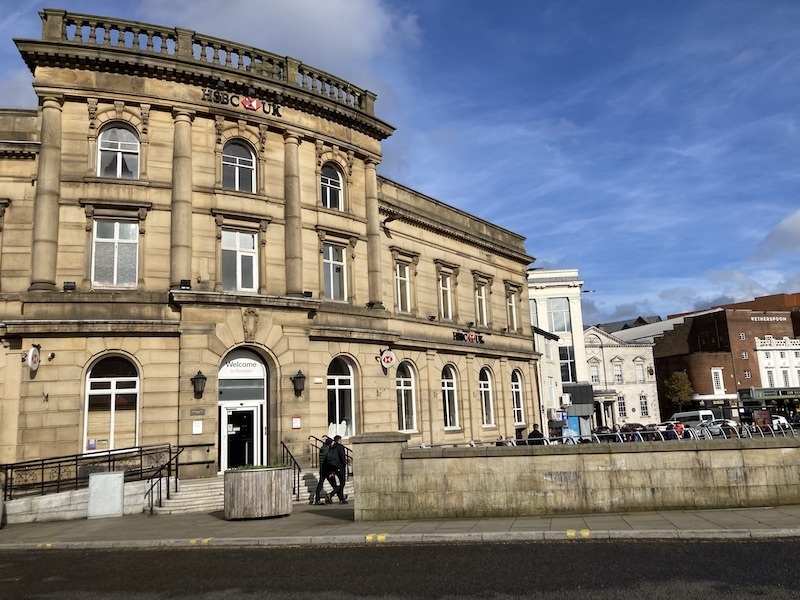
Recent years have seen independent businesses take on properties in the town centre, and John explained that while Rochdale Borough Council plays its part in ensuring there's momentum behind the regeneration, it is ultimately people who are at the heart of a changing town.
"We've got some really good entrepreneurs," he said. "One example would be Ben Boothman at Bombay Brew - he's got a little empire. The BID (business improvement district) is run by Paul Ambrose, who's really dedicated to what he does. Ultimately, people make these things happen. The council can throw as much money as it likes at making things look nice, but you've got to fill them with interesting places to eat and see and do. The people of Rochdale are proud of their town and there's a lot of businesses from Rochdalians doing a good job.
"What somewhere like Stockport is doing is really impressive, and I don't think people realise we've got similar things happening in Rochdale. We're both councils that punch well above our weight, with really committed councillors and officers running around their own towns doing great things.
"I'm very optimistic. The council's delivered on its previous masterplans so you can bet your bottom dollar we plan on delivering these ones as well. Rochdale's best days are definitely ahead of it."
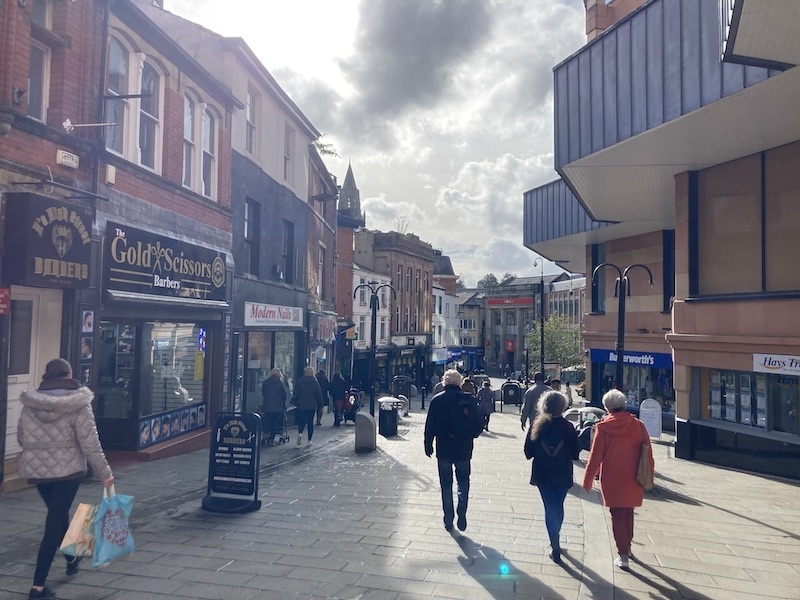
These words may well be a source of optimism for local residents and those who visit the town, especially when you consider the news back in 2011 that McDonald's was vacating its shop on Yorkshire Street after 28 years.
It was billed as something of a death knell for Rochdale town centre, as reported in The Guardian, with Caroline Davies writing at the time that "last week McDonald's shut up shop, joining a growing number of key businesses deserting the town centre, and in so doing, according to shoppers and some retailers, banging another nail in the coffin of its struggling high street".
The unit went on to become a Poundworld, which has also since closed, leaving the building open to applications and serving up an opportunity for several independent businesses to move into the nearly 1,000 sqm of space, according to Rochdale BID manager Paul Ambrose.
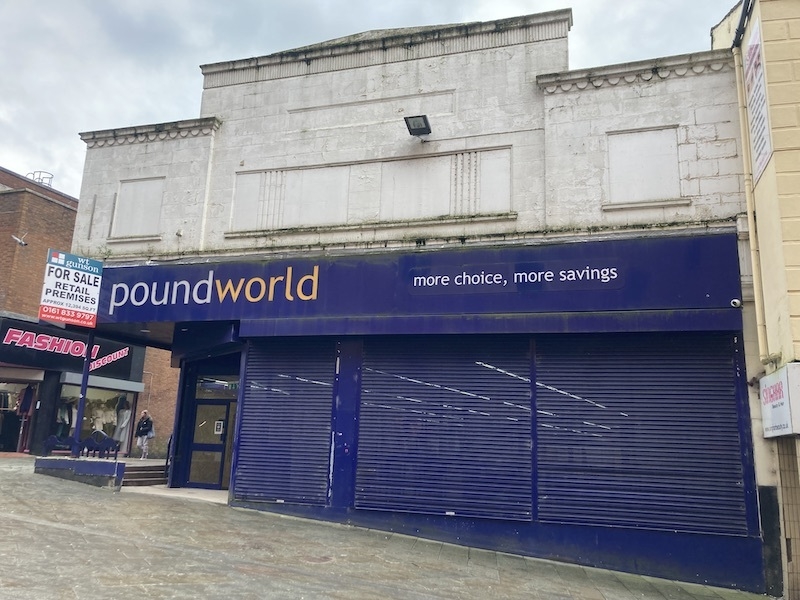
"That building closing was almost like a watershed moment," he said. "The Guardian story effectively said 'Rochdale can't even hang onto a McDonalds' and it was a real moment where, I feel, we sort of bottomed out as a town. Now with that building, we've worked as a BID in the background to make sure it finds a buyer and it's actually been sold.
"The person who's started converting it is putting in seven retail units with 24 apartments above, and that's a really positive sign that even in Yorkshire Street you're starting to see positive change. Hopefully we'll get seven really good quality independent retailers going into that property maybe in the next 12 months.
"In terms of the town in general you certainly need to keep your foot on the accelerator in terms of rejuvenation, because the headwinds and challenges are always there. Obviously I'd like to see a growing food and drink offer but we also have to look at what's missing in the town centre.
"We don't have a theatre, unlike similar towns. Look at the Stockport Plaza - an amazing building and a huge asset for the town. There's an audience and a market that would want something similar in Rochdale and we have the buildings that could potentially lend themselves to something like that. Once the Town Hall is completed there'll be a huge opportunity for the council and partners to work together to create a really exciting programme of events, much like The Piece Hall in Halifax, in Town Hall Square - it's a magnificent space crying out to be used on a regular basis."
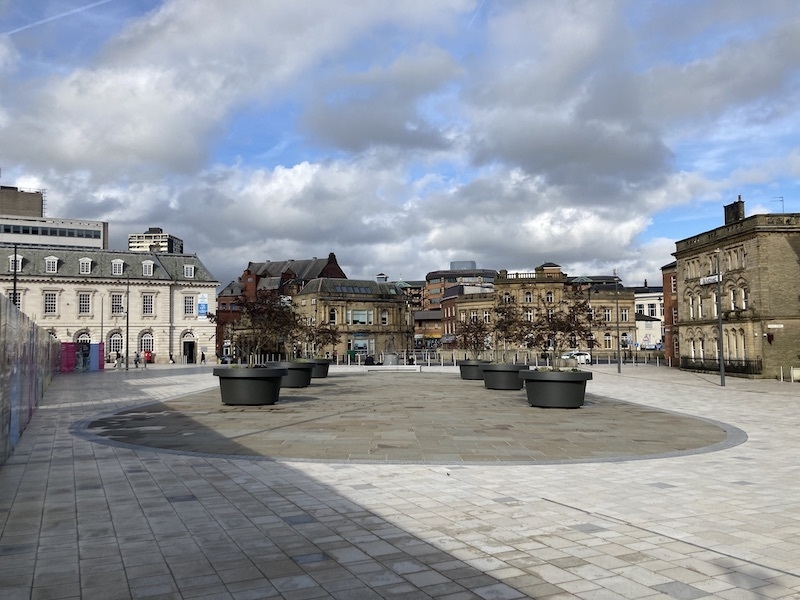
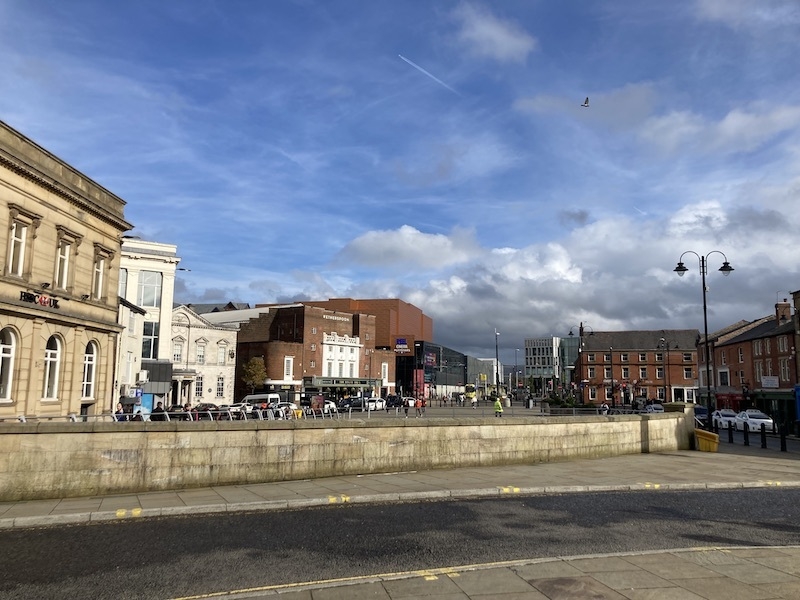
Now perhaps more than ever the key factor in establishing a thriving town centre economy is particularly prominent - risk. Ultimately setting up a business is no guarantee of attracting the customers required to make the month's rent. In an effort to lay the groundwork for budding businesses Rochdale Borough Council has offered financial incentives like business rates holidays as well as rental guarantees to ensure a growing property market, as Director of Economy at RBC, Mark Robinson, explained.
"The borough council have done schemes, not just in Rochdale but town centres like Middleton and Heywood, where we've agreed with the property owner that if the rent doesn't achieve a certain yield, we would compensate them to an agreed level," he said. "So that's helped get residential schemes off the ground where the developer would be unwilling to take the risk, but the council's underwritten that risk, and the rents have achieved the yield anyway, so the council hasn't actually had to put any money into the scheme at all.
"Often one thing then stimulates the other and by creating that interest hopefully the market will then just take it on and the council can step back and be more of a facilitator than an investor.
"Sometimes you have to take the risk, but also sometimes that risk never actually manifests itself anyway. It's just that without the council stepping in and being willing to underwrite that risk then the market wouldn't be interested. It's very much about momentum and keeping things going."
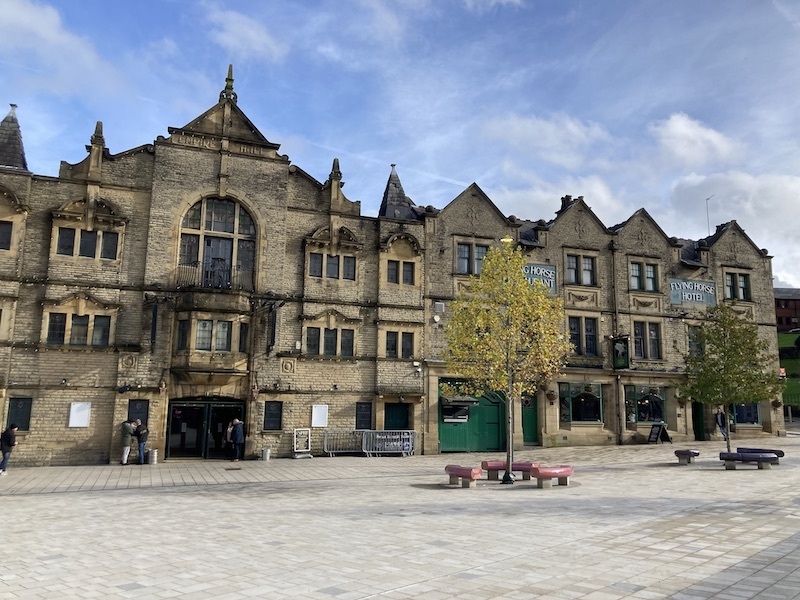
This seems then to be a rare opportunity for Rochdale, a confluence of council incentive, hungry entrepreneurs looking to inject something new into the town, and the buildings in which to make it all happen.
For somewhere that once 'couldn't keep hold of a McDonald's', the future could well see Rochdale town centre become a haven for independents and transform to the point where, should Ronald McDonald come knocking, there will be no room for the golden arches on Yorkshire Street.






